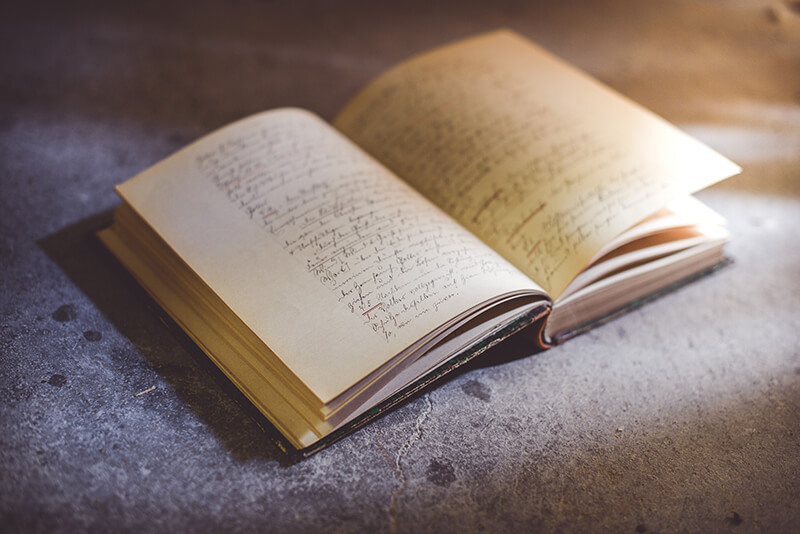
How to Write a Hook That Will Immediately Grab Your Reader’s Attention
 When you think about how to write a hook, you probably think about all of the things people have told you to use over the years, like dictionary definitions and catchy quotations. But the truth is that a lot of these things don’t actually work as an opening line.
When you think about how to write a hook, you probably think about all of the things people have told you to use over the years, like dictionary definitions and catchy quotations. But the truth is that a lot of these things don’t actually work as an opening line.
You have to remember that your professor has likely read thousands of essays throughout their time in academia. They’ve seen those dictionary definitions and quotes a hundred times over. Just because they have to read your paper doesn’t mean you can get away with this, either: the more you lose your professor’s interest, the more your grades are going to suffer.
So, that being said, what does it take to write a hook that actually does the job and draws your reader in? Not everyone is able to channel strong, creative ideas into their essay writing, and that’s why we’re here to help give you some foolproof places to start.
In this article, we’re going to break down all of the different types of content you could use to write a great hook. By the end of this article, you’re going to know how to write a hook that is original, unique, catchy, and most importantly, a perfect transition into your introduction. Next time you’re tempted to start your essay with the line “throughout history,” stop what you’re doing and read this first.

The Importance of a Hook
The first step in learning how to write a hook is understanding why a hook is so important in the first place. Every introduction is made up of three components: your hook, your context, and your thesis statement. All of these components work together to make sure your reader has a clear idea of what they’re getting into when they read your paper.
Your opening line is a key component of not only a great introduction, but your entire paper because it’s the first line your reader sees, and it has to capture their interest to encourage them to continue reading. It’s called a hook for a reason – to resemble the hook that successfully baits and catches a fish.
How many times have you seen someone on television or in real life open a wedding toast with something along the lines of, “the dictionary definition of love is…” or with the Bible verse, “love is patient and kind; love does not envy or boast”? Now think about how everyone in the room usually reacts when they hear those opening lines – you’re probably going to see some yawning, some eye rolling, and maybe even some watch checking. You’ll get this same reaction from your readers if you don’t nail down the hook of your essay.
The entire point of a hook in an academic essay is to grab your audience’s attention, peak their curiosity, and make them want to continue reading. You simply can’t do that if you use a line they’ve already heard before. Essentially, your essay hook is your first impression on your reader. You have one chance to interest and impress them, and if you don’t get it right the first time, they won’t care about anything you have to say.
What to Avoid in Your Opening Line
Before we dive into the details of how to write a hook, let’s go over what you should not do. Here are some of the techniques people commonly use that can immediately ruin a good hook:
● Dictionary definitions
● Boring facts and statistics
● Overused cliches
● Motivational quotes
● Generic phrases such as “since the beginning of time…” or “throughout history…”
Now, it’s important to remember that there are exceptions to every rule. That’s why we’re going to go over some of these things in more detail to show you how you can use them in a way that engages your audience effectively. However, there are a few items in the list above that there are never exceptions for: dictionary definitions, generic phrases, cliches, and motivational quotations.
Cliches in particular are overused, vague, and unoriginal. You are not the first person to use one, and you won’t be the last, either. Further, the University of North Carolina at Chapel Hill argues that the use of cliches can actually reduce the credibility of your essay because they aren’t specific, don’t offer any fully developed ideas, and therefore act as “placeholders” for a more intelligent, academic discussion.
Using a cliche, a quote, or a dictionary definition is the easiest way to let your teacher know that you put no thought into your introduction (or your essay entirely). Anyone can go and copy a definition or generic saying from Google, but the real way to showcase your essay writing skills is to come up with a creative, engaging line your professor or audience won’t have read before.
It’s also important to note that you should never use these lines in your conclusion, either. For more tips on how to make your conclusion work properly, check out our blog on how to write a conclusion.

How to Write a Hook That Doesn’t Put Your Audience to Sleep
We’re going to break down all of the different types of content you could use to write a great hook. Some of these are actually included in the above list of things not to do, but we’re going to show you how you can actually make them work if you do want to use them.
The key to any good hook is making sure that your sentence fits in with the point you’re trying to make within your essay, as well as the tone you’re trying to set within your paper. You want to avoid giving away the entire premise of your paper right in the first sentence and leave a little bit up to the reader’s imagination, but you also need to make sure your hook is relevant enough to convey your topic. This can be a tricky thing to navigate.
You can easily learn how to write a hook with some of these time-tested, reliable techniques. However, before you skim through and pick a few to try, make sure you read through each one to be sure you’re using it effectively.

Stories and Anecdotes
One of the most effective ways to engage your audience’s curiosity and capture their interest is to start off your introduction with a story or anecdote. For example, if you’re writing a reflection paper for a course on British culture, you could open with a story about a time you went to England and were confused by some of the slang.
You need to be careful when using a story or anecdote to open your essay, as sometimes this technique doesn’t really fit in with your overall point or argument. Telling your reader a story about a trip you took to Paris in your senior year of high school has no place in a paper about the French Revolution. However, if you come across a story about something Marie Antoinette did the morning of her execution, that would make a great opening line.
Another thing you need to be cautious about with stories is using first person narrative. You should avoid first person narrative at all costs when writing an academic college essay unless it’s either been specified in your instructions or if you’re writing a personal narrative, opinion, or reflection paper.

Facts and Statistics
Here’s the thing about facts and statistics: nine times out of ten, they are boring. Your hook needs to be the exact opposite of that. Therefore, in order to use a fact or a statistic effectively in your opening line, you need to use something that’s shocking, surprising, or downright unbelievable. The goal is to make your reader think, “are you serious?” or “is that really true?” and keep reading in order to confirm the fact.
For example, let’s say you’re writing an essay about gun control in the United States. Here are two statistics on the topic (courtesy of Safe At Last):
1. Approximately 43% of households in the United States own at least one gun.
2. Over 75% of children in the first and second grade say that they know where their parents keep their guns, and 36% of those children admitted that they had handled the guns before.
Now, which of these two statistics is a better hook? Most people already know that a large population of Americans own guns, as this is a topic that is highly debated and often controversial in the country. Therefore, the second statistic is more shocking because most people would collectively agree that guns are incredibly dangerous for children to touch, and children are prone to touching things if they know where they are. Additionally, the second statistic adds an emotional component that would appeal to your reader’s heartstrings.
One thing you should be cautious about when opening your essay with a fact or statistic is the fact that you will need to cite the source. This can often take away from the power of your first line, and it’s a good general rule of thumb to make sure your hook is written in your own words.

Quotations
There’s almost no circumstance or situation where it’s wise to use a motivational quotation to start an academic essay. Unfortunately, many people who learn how to write a hook in high school are taught that quotes are a great way to open an essay, and it’s hard to break that habit once you get to college or university.
Motivational quotations don’t work as a hook for many reasons. Here are just a few of those reasons:
● They are often overused and over-shared.
● It’s really hard to find something that’s relevant to your topic.
● Not everyone likes motivational quotes, and some people are turned off by them. Do you want to risk your professor being one of those people?
● You have to credit them and cite them, which takes away from the impact of that very important opening line.
● Your reader should get the impression that YOU have something interesting to say – not whoever came up with the quote you share. This can ultimately make your audience believe you haven’t put too much thought in the rest of your essay since you couldn’t even come up with an original opening line.
That being said, there are a few ways you could use a quotation and make it work, but you have to be very careful. If you insist on using a quotation to open your essay, use a quotation from one of your sources or something spoken by an expert in the field. However, if you do this, make sure the quotation is something interesting and new, like a new discovery in the field. You could also try to use a quotation from another author’s thesis. With every quote, make sure you always give credit to the original author.

Asking a Question
Using a question as your opening line is also a grey area when it comes to essay writing. A question is designed to make someone think, and as human beings, we are naturally inclined to want to get answers to questions. But sometimes using the wrong question as your hook can make your paper seem juvenile.
The trick is to make sure you ask an intelligent, thoughtful question that makes your reader want to learn more. Questions like “did you know that 50% of people buy clothing online?” are neither thoughtful nor intelligent. Generally, you want to avoid any question that starts with “have you ever wondered…” or “did you know that…”
Another issue with asking a question as your opening hook is that it’s very easy to confuse the perspective and stray from the third-person voice. You shouldn’t be using words like “you” and “we” in an academic university or college essay, but it’s also very common to see that type of phrasing in questions because they’re direct and personal.
The best types of questions to use as an opening hook are questions thattips make people think, are directly related to your topic, and appeal to your reader’s curiosity. Theoretical questions that pertain to your essay topic are a good place to start. For example, if your essay is about population growth and its impact on climate change and you’re planning on touching on the carbon footprint of childbirth, you could start with a question such as, “what would happen if each family in America had one less child?” This question not only makes your reader think, but also encourages them to continue reading to find the answer.
Another important thing to remember when opening your essay with a question is that you do need to answer it. You can’t just ask your reader to think about something and then make them read through six paragraphs before they get to the information. So, if we go with the question above about Americans having less children, your first two lines could look something like this: “What would happen if each family in America had one less child? Scientists say there could be a substantial reduction in household waste production if the average family had no more than three children.” It answers the question, but still encourages your audience to keep reading because they want to know more about the data and facts and why this is the case.

A Surprise Fact or Tidbit You Learned in Your Research
If something you read shocked or surprised you, chances are it’ll surprise your audience as well. Opening your introduction with a surprise is a great way to catch your reader off guard and give them something they can’t help feel curious about. After all, they don’t call it shock value for nothing.
This is the same concept used when we discussed general facts and statistics above. Make sure it’s something interesting, the information is correct, and it’s not common knowledge. For this reason, a lot of people tend to come up with their hook after writing most of the body of their essay in case they come across something so fascinating it could be a great opening line. Of course, you could always just change it later on if this is the case for you.
Let’s say you’re writing a paper about obesity in the United States and you come across a startling statistic on how much sugar the average American consumes within a year. Research indicates that Americans typically eat approximately 57 pounds of sugar per year. This would be a great opening line for your essay because it is quite shocking. To present it as a catchy line that both surprises your reader and makes them want to read more, you could say something like this: “The average American consumes more sugar per year than the average weight of two toddlers combined.” This sentence is still shocking, but just mysterious enough to make your reader want to keep reading to find out what that number is.

Metaphors and Similes
Opening your essay with a metaphor or simile is a great way to engage your audience, but you have to make sure that you use the right one. The biggest issue with metaphors and similes is that they can often blur into cliches. For example, here are a few metaphors or similes that are also overused cliches that have no business being in a college essay:
● He left the room with his tail tucked between his legs.
● This was simply the calm before the storm.
● Just like that, the writing was on the wall.
● Time heals all wounds.
● He had nerves of steel.
The key to using a metaphor or simile properly in your hook is to make sure it’s descriptive and academic. You can easily make a great comparison as long as you keep it within the appropriate level of your course and your audience. If it sounds like you’ve heard it before, you probably have, so try something else if that’s the case.
A Statement or Declaration
Statements and declarations often fall into the same trap as facts and statistics. If you don’t choose something bold or shocking, they can easily become boring and uninteresting.
This could be a great opportunity to use a powerful conclusion you’ve come to in your research or in one of your main points. It could be an observation you’ve made, but you have to make sure you expand on it. Don’t just leave a statement there without context, especially if it’s something shocking or surprising.
If you go this route, you also want to avoid using your big major thesis point as your hook. Giving everything away in the first sentence won’t encourage your audience to keep reading. After all, why would they bother if they already know the point you’re making? Leave a little bit to the imagination and choose another intriguing point.

Important Tips to Remember When Writing Your Hook
While we’ve covered some of the techniques you can use to learn how to write a hook, it’s also important to understand what it is that makes a hook so effective. Here are some tips to remember when writing your critical opening line.
● Make sure you stay on topic and keep your hook relevant to your essay. Don’t mislead your readers by luring them in with a line that doesn’t have anything to do with your content. This is essentially the academic equivalent of a clickbait article.
● Be as descriptive as you can. Sometimes this is a little tricky when you have to stay within one or two lines, but the more descriptive you can be, the more intriguing your paper is.
● Don’t write more than two sentences for your hook. Once you quickly capture your reader’s interest, get on with your points.
● Leave your audience with questions. Whether you’re using a question as your hook or not, you always want to make sure you peak your audience’s curiosity and make them wonder about something.
● Pick an intriguing or interesting topic for your essay if you can. Writing about topics you’re interested in or passionate about makes it a lot easier to come up with great introductions and hooks. If you need some ideas, check out our list of 250 research topics for college students!

20 Creative Hook Ideas You Can Replicate
Now that we’ve given you some of the core elements you can use while learning how to write a hook for your college essay, it’s time to see some of them in practice.
Here is a list of 20 intriguing, creative hook ideas you can use in your own essays. Feel free to steal them, tweak them to your own essay, or use them as inspiration. For your convenience, we’ve also noted what type of essay these hooks could be used for to give you an idea of how to ensure your hook is relevant for your topic.
Non-Personal Stories and Anecdotes
1. 432 years ago, a curious scientist began dropping objects of different masses from the top of the Leaning Tower of Pisa to see how fast they fell. That man was Galileo Galilei, and his experiment disproved Aristotle’s theory of gravity, triggering a series of discoveries that transformed the world of scientific theory. (For a research paper on Galileo’s contributions to science).
2. In 1503, Christopher Columbus used an almanac created by Abraham Zacuto to accurately predict a lunar eclipse for March 1504 in order to trick the Indigenous people of Jamaica to continue feeding and housing his crew. This is one of the many instances throughout history wherein Indigenous people have been exploited and manipulated by colonizers. (For an argumentative essay or research paper on the treatment of Indigenous peoples in history).
3. Howard Carter was not expecting to make a monumental discovery when he stepped onto an excavation site in the Valley of the Kings in November of 1922. Little did he know, he was about to spend the next 10 years carefully preserving artifacts from Tutankhamen’s tomb, making one of the largest discoveries in the history of Egyptology and creating a household name for himself in the process. (For an expository essay on Egyptology).
4. In 1892, an African American man named Homer Plessy refused to sit in a segregated train car for African Americans, claiming that his constitutional rights were violated. His case, Plessy v. Ferguson, led to a landmark court decision that led to the implementation of Jim Crow Laws and repressed the rights of African Americans, fueling the early foundations for the anti-racism movements that would take place over the next century. (For a research paper on the Civil Rights Movement or a compare and contrast essay on the Civil Rights Movement and the Black Lives Matter movement).
Surprising Facts, Statements, and Statistics
5. Obesity causes more early preventable deaths than smoking in the United States each year, yet many Americans continue to spend more money every year at fast food chains and take-out restaurants. (For a research paper on obesity in America or an argumentative essay about solutions to obesity in America).
6. Scientists say that it is very likely artificial intelligence will become commonplace within the next 10 years. (For a research paper on artificial intelligence).
7. At an estimated 508 million years old, British Columbia’s Burgess Shale deposit is one of the earliest fossil beds ever found in the world; yet many people will go their entire lives without hearing about this formation and its associated discoveries. (For an argumentative essay on the need for more fossil study).
8. Approximately 500,000 people around the world suffer a spinal cord injury every year, yet there is still no cure for paraplegia. (For a research paper on spinal cord injury research; the statistic is from the World Health Organization).
Asking an Intelligent Question
9. What would the world look like in ten years if every human on earth decided to adopt a plant-based diet tomorrow? (For an argumentative essay on plant-based diets and climate change).
10. If a student stays up all night to study the night before a test, will they do better than a student who prepared in advance? (For a research paper or science experiment on students’ studying habits).
11. With the weight loss industry in the United States valued at $72 billion, why is there still an obesity epidemic in the country? (For an expository essay on the weight loss industry).
12. With so many school shootings done by illegally purchased weapons, will enforcing stricter background checks on gun purchases actually lead to safer communities in the United States? (For an argumentative essay on gun regulation in the United States).
Non-Motivational Quotations
13. “It is evident that the nature of the location where this event happened, together with the impact angle, made for a perfect storm,” says Professor Gareth Collins of Imperial College London. Collins and his research team have recently made groundbreaking research at the Chicxulub Crater that proves the meteor extinction theory that killed off the dinosaurs. (For a cause and effect essay on the extinction of dinosaurs; the quote is from BBC News).
14. “AI will be the best or worst thing ever for humanity.” These words, uttered by SpaceX founder Elon Musk, have resonated with those who have serious concerns about the future of artificial intelligence. (For an argumentative essay about the dangers of artificial intelligence; the quote is from Analytics India).
15. “Be nice to nerds, chances are you’ll end up working for one.” This quote, commonly attributed to Bill Gates, represents a popular stereotype about smart people and “nerds” often becoming more successful after high school than popular people. (For an argumentative essay on the negative impact of stereotypes; this quote has unknown origins and did not actually come from Bill Gates; therefore no source is listed here).
16. “My only love sprung from my only hate/ Too early seen unknown, and known too late!” (Romeo and Juliet 1.5). These famous words uttered by Romeo Montague set the scene for the rest of Shakespeare’s tragic play and offer foreshadowing for the events to come. (For a literary analysis essay on Romeo and Juliet).
Descriptive Metaphors and Similes
17. Year after year, wildfires blaze through the forests of Australia like a tidal wave of fire, and climate change has contributed to the increasingly devastating impact. (For a research paper on climate change and natural disasters).
18. After the COVID-19 pandemic shuttered global citizens inside for over a year, Zoom meetings have transformed workplace water cooler gatherings for the foreseeable future. (For a research paper on the impacts of the COVID-19 pandemic on workplace structure).
19. While Harry Potter continues to act like a spoiled child who does not learn his lesson, his friend Hermoine Granger is the true hero of the series. In Harry Potter and the Prisoner of Azkaban, Harry would not have accomplished anything without her assistance. (For a character analysis essay on Hermione from the Harry Potter series).
20. In her article, Liz Collins writes about the topic of fair trade with the enthusiasm levels of someone who has just opened a box of golden retriever puppies. (For a literature review on a fictional article).

When in Doubt, Let an Expert Academic Writer Create a Catchy Opening Line For You
If you’re not feeling that confident in your essay writing skills or you just don’t have time to learn how to write a hook for your paper, you always have options. At Homework Help USA, we have a team of academic writers on hand who have the skills to create an intriguing hook for even the most uninteresting subjects.
Every one of the writers on our team is well versed in their area of focus and has written countless catchy and intriguing hooks and opening lines for essays, assignments, speeches and more. We understand exactly how to grab your reader’s attention, so you don’t have to worry about a thing.
Get a free quote now or order your next assignment online with just the click of a button, and you’ll see the difference a professional can make in your grades.
Share:

